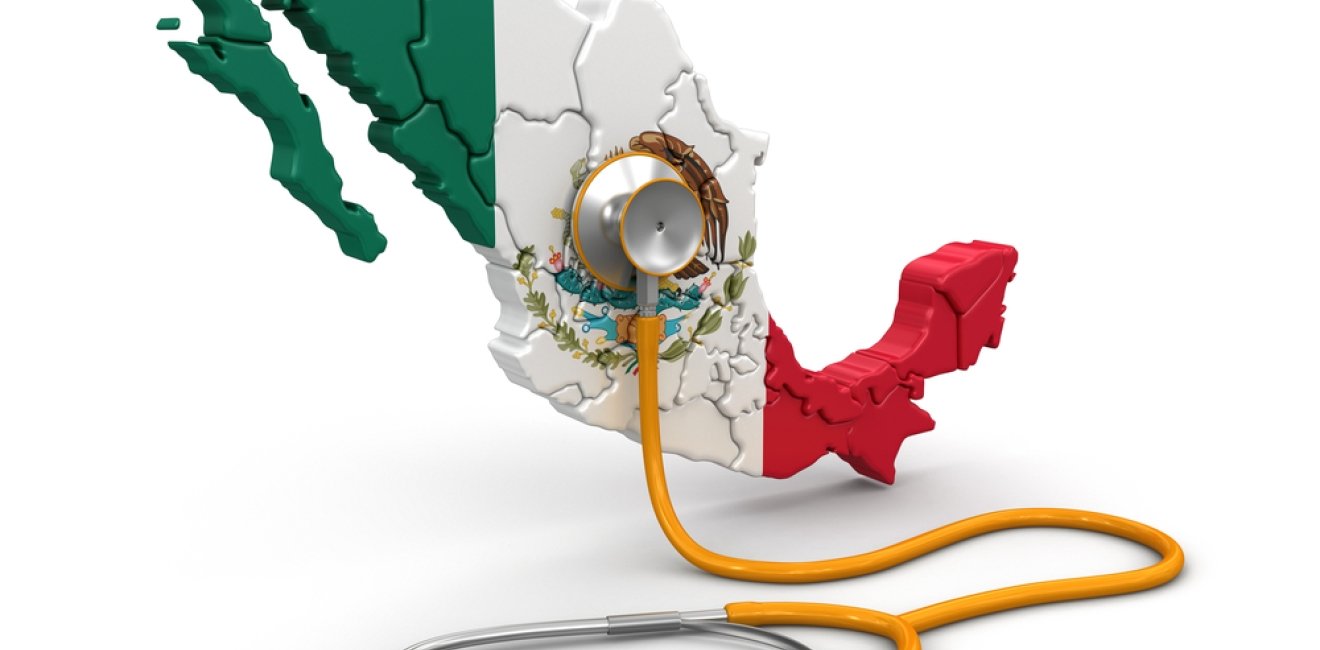Navigating Healthcare as an Expat in Mexico: What You Need to Know

Welcome to a comprehensive guide on Healthcare in Mexico for Expats. Moving to a new country is always an adventure, filled with exciting opportunities and new experiences. However, it also comes with its own set of challenges, and navigating the healthcare system is often one of the most daunting. In Mexico, the healthcare landscape can be quite different from what you’re used to, particularly if you're coming from the United States or Europe. This blog post is designed to provide you with the essential information you need to access quality medical care in Mexico, covering everything from insurance options to finding English-speaking doctors and understanding the common practice of paying in cash. We'll also share some personal experiences and resources to help you feel confident and prepared. Be sure to check out our related podcast episode, "The $50 Root Canal in Mexico | This Might Be a Bad Idea," where we delve into our own shocking, and sometimes humorous, experiences with Mexican healthcare.
Introduction: Healthcare in Mexico for Expats - A Different World
One of the first things expats notice upon arriving in Mexico is that healthcare operates differently. While the country offers a blend of public and private healthcare services, the system is structured in a way that might require some adjustment. The public healthcare system, while accessible to many, can sometimes be burdened with long wait times and limited resources, particularly in rural areas. On the other hand, the private healthcare system offers a higher standard of care, often with modern facilities and shorter wait times. However, it's typically more expensive. Understanding these differences is crucial for making informed decisions about your healthcare needs. Expats often find themselves navigating both systems, utilizing public healthcare for certain needs and opting for private care for others. The key is to be informed and prepared. This involves understanding the available insurance options, knowing how to find qualified doctors, and being aware of the payment practices. In Mexico, it's not uncommon for healthcare providers to expect payment in cash, even for significant procedures. This can be a surprise to expats who are used to relying on insurance and electronic payments.
Jeff's $50 Root Canal Story: A Glimpse into Mexican Dental Care
Let's dive into a real-life example that highlights the unique aspects of Mexican healthcare: Jeff's $50 root canal. This story, which we share in detail in our podcast episode, perfectly illustrates both the affordability and the unexpected nature of medical care in Mexico. Jeff woke up one morning with a severe toothache, a situation that would have likely resulted in a costly and time-consuming ordeal back in the United States. However, in Mexico, the experience was quite different. After a bit of research and recommendations from locals, Jeff found a dentist in Merida who could perform a root canal at a fraction of the cost he would have paid back home. The experience itself was a mix of surprise and relief. The dental office was located in an unexpected place, and the atmosphere was certainly different from the sterile, high-tech clinics he was used to. But the dentist was skilled and professional, and the procedure was completed quickly and effectively. The final cost? A mere $50 USD. This story isn't meant to suggest that all medical care in Mexico is cheap or that all dental offices are unconventional. Instead, it serves as a reminder that healthcare in Mexico can be surprisingly affordable and accessible, but it's essential to be open-minded and prepared for a different experience. It also highlights the importance of doing your research and seeking recommendations from trusted sources.
Understanding the Mexican Healthcare System
The Mexican healthcare system is a complex blend of public and private services designed to cater to a diverse population with varying needs and income levels. To effectively navigate this system, it’s important to understand its structure and the different options available to you. The public healthcare system is primarily divided into three main branches: the Instituto Mexicano del Seguro Social (IMSS), the Instituto de Seguridad y Servicios Sociales de los Trabajadores del Estado (ISSSTE), and Seguro Popular (now INSABI). IMSS is primarily for private-sector employees and their families, providing a wide range of medical services, including doctor visits, hospital care, and medications. ISSSTE is similar to IMSS but caters to government employees. Seguro Popular, now replaced by INSABI, was designed to provide healthcare coverage to uninsured citizens, particularly those in lower-income brackets. While these public options offer affordable healthcare, they can sometimes be plagued by long wait times, limited access to specialists, and outdated facilities, particularly in rural areas. This is where the private healthcare system comes into play. The private system is characterized by modern facilities, shorter wait times, and a higher standard of care. It includes private hospitals, clinics, and individual practitioners. However, private healthcare is significantly more expensive than public healthcare, making it essential to have adequate insurance coverage or the ability to pay out-of-pocket. Many expats opt for a combination of public and private healthcare, using public services for routine check-ups and basic care while turning to private providers for specialized treatments or emergencies. Understanding the strengths and limitations of each system will help you make informed decisions about your healthcare needs in Mexico.
Insurance Options for Expats in Mexico
Choosing the right insurance is paramount for expats seeking healthcare in Mexico. Several options are available, each with its own advantages and disadvantages. One option is to enroll in the Mexican public healthcare system. As mentioned earlier, IMSS and INSABI offer coverage to eligible residents. To enroll in IMSS, you typically need to be a legal resident with a work permit. INSABI is available to all Mexican citizens and legal residents, regardless of employment status. While these public options are affordable, they may not provide the level of coverage or access to care that some expats desire. Therefore, many expats choose to purchase private health insurance. Private insurance plans offer a wider range of coverage, including access to private hospitals and doctors, shorter wait times, and more comprehensive benefits. Several international and Mexican insurance companies offer plans specifically designed for expats. These plans can be tailored to your individual needs and budget, with options for varying levels of coverage and deductibles. Some popular international insurance providers include Cigna, Allianz, and IMG. Mexican insurance companies like AXA and GNP also offer competitive plans. When selecting a private insurance plan, it's essential to consider factors such as the coverage area (whether it's limited to Mexico or extends internationally), the network of providers, the claims process, and the policy exclusions. It's also a good idea to read reviews and compare quotes from multiple providers to ensure you're getting the best value for your money. Another option to consider is travel insurance. While travel insurance is typically designed for short-term trips, some policies can be extended for longer stays and may provide coverage for emergency medical expenses. However, travel insurance usually has limitations and may not cover pre-existing conditions or routine medical care. Ultimately, the best insurance option for you will depend on your individual circumstances, including your age, health status, budget, and desired level of coverage. It's crucial to carefully research your options and choose a plan that provides you with peace of mind and adequate protection.
Finding English-Speaking Doctors and Specialists
Language barriers can be a significant obstacle when seeking medical care in a foreign country. Fortunately, many doctors and specialists in Mexico, particularly in tourist areas and major cities, speak English. However, it's still important to do your research and ensure that you can effectively communicate with your healthcare provider. One of the best ways to find English-speaking doctors is to ask for recommendations from other expats or locals. Online expat forums and social media groups can be valuable resources for finding trusted healthcare providers. You can also check with your embassy or consulate, as they often maintain lists of English-speaking doctors in the area. Another option is to use online directories and search engines. Websites like expat.com and Angloinfo offer directories of English-speaking professionals, including doctors, dentists, and other healthcare providers. You can also use Google or other search engines to search for "English-speaking doctors in [your city]" or "[specialty] in English in [your city]." When contacting a doctor or specialist, it's always a good idea to confirm their English proficiency and ask about their experience treating expats. You may also want to inquire about their credentials and qualifications. In Mexico, doctors are typically required to be licensed and certified by the appropriate medical boards. If you have any doubts about a doctor's qualifications, you can check with the Mexican Medical Association (Asociación Mexicana de Médicos) to verify their credentials. In addition to finding English-speaking doctors, it's also helpful to learn some basic Spanish medical vocabulary. This will allow you to communicate more effectively with other healthcare professionals, such as nurses and pharmacists, and to understand basic medical instructions. Even a few basic phrases can go a long way in ensuring that you receive the best possible care.
The Cash-Based System: What to Expect
One of the most significant differences between the Mexican healthcare system and those in many Western countries is the prevalence of cash payments. While credit cards are accepted in some private hospitals and clinics, many doctors and specialists, particularly in smaller towns and rural areas, prefer or require cash payments. This can be a surprise to expats who are used to relying on insurance and electronic payments. It's essential to be prepared for this reality and to have sufficient cash on hand when seeking medical care in Mexico. Before your appointment, it's a good idea to inquire about the accepted methods of payment. If the provider requires cash, ask for an estimate of the cost of the consultation or procedure. This will allow you to withdraw the necessary funds in advance. When paying in cash, it's important to count the money carefully and to ask for a receipt. The receipt should include the name of the provider, the date of service, the amount paid, and a description of the services rendered. Keep the receipt for your records and for insurance reimbursement purposes, if applicable. If you have private insurance, you may need to pay the provider upfront and then submit a claim to your insurance company for reimbursement. Be sure to check with your insurance provider about their claims process and the required documentation. Some insurance companies may have agreements with certain hospitals or clinics, allowing for direct billing. In these cases, you would only need to pay your deductible or co-payment. It's also worth noting that the cost of medical care in Mexico is generally lower than in the United States or Europe. This means that even if you have to pay out-of-pocket, the expenses may still be manageable. However, it's always a good idea to shop around and compare prices before committing to a particular provider or treatment.
Tips for Accessing Medical Care in Mexico
Navigating the Mexican healthcare system can be challenging, but with the right knowledge and preparation, you can access quality medical care with confidence. Here are some practical tips to help you along the way:
- Do your research: Before you need medical care, take the time to research the available options in your area. Identify English-speaking doctors, hospitals, and clinics that meet your needs.
- Ask for recommendations: Seek recommendations from other expats, locals, or your embassy or consulate. Personal recommendations can be invaluable in finding trusted healthcare providers.
- Learn basic Spanish: Even a few basic Spanish phrases can make a big difference in your ability to communicate with healthcare professionals.
- Be prepared to pay in cash: Many providers in Mexico prefer or require cash payments. Have sufficient cash on hand and ask for a receipt.
- Understand your insurance coverage: Know the details of your insurance plan, including the coverage area, network of providers, claims process, and policy exclusions.
- Keep copies of your medical records: Bring copies of your medical records, including any pre-existing conditions, medications, and allergies.
- Be patient and flexible: The healthcare system in Mexico may operate differently from what you're used to. Be patient and flexible, and be prepared to adapt to the local practices.
- Don't be afraid to ask questions: If you have any questions or concerns, don't hesitate to ask your healthcare provider. It's important to understand your treatment plan and to feel comfortable with the care you're receiving.
- Consider medical tourism: If you need specialized treatment or surgery, consider traveling to a larger city with more advanced medical facilities. Mexico has a growing medical tourism industry, with many hospitals and clinics catering to international patients.
- Stay informed: Stay up-to-date on the latest healthcare news and developments in Mexico. This will help you make informed decisions about your healthcare needs.
Resources for Expats: Navigating Healthcare
To further assist you in navigating the Mexican healthcare system, here is a list of helpful resources for expats:
- Expat Forums and Social Media Groups: Online forums and social media groups dedicated to expats in Mexico can be a valuable source of information and support. You can ask questions, share experiences, and get recommendations from other expats.
- Embassies and Consulates: Your embassy or consulate can provide you with information about healthcare services in Mexico and can assist you in finding English-speaking doctors and hospitals.
- Online Directories: Websites like expat.com and Angloinfo offer directories of English-speaking professionals, including doctors, dentists, and other healthcare providers.
- Mexican Medical Association (Asociación Mexicana de Médicos): The Mexican Medical Association can help you verify the credentials of doctors and specialists in Mexico.
- Insurance Providers: Contact international and Mexican insurance companies to learn about their expat health insurance plans and to compare quotes.
- Medical Tourism Agencies: If you're considering medical tourism, contact reputable medical tourism agencies to help you find qualified doctors and hospitals and to arrange your travel and accommodations.
- Books and Guides: There are several books and guides available that provide detailed information about healthcare in Mexico for expats.
- Online Translation Tools: Use online translation tools to help you communicate with healthcare professionals if you don't speak Spanish fluently.
Our Shocking Experiences and Lessons Learned
Throughout our time in Mexico, we've had our fair share of surprising and educational experiences with the healthcare system. Beyond Jeff's $50 root canal, we've encountered numerous situations that have taught us valuable lessons about accessing medical care in Mexico. One instance involved a visit to a local pharmacy for a minor ailment. We were amazed at the accessibility of medications that would require a prescription in the United States. However, we quickly learned the importance of consulting with a doctor or pharmacist to ensure we were taking the right medication and dosage. Another experience involved navigating the public healthcare system for a routine check-up. The process was different from what we were used to, with longer wait times and a more bureaucratic approach. However, we were impressed by the dedication and professionalism of the healthcare providers. These experiences have taught us the importance of being adaptable, patient, and proactive when seeking medical care in Mexico. We've also learned the value of building relationships with local healthcare providers and seeking recommendations from trusted sources. Perhaps the biggest lesson we've learned is that healthcare in Mexico is not necessarily inferior to healthcare in other countries. It's simply different. By understanding the system, being prepared, and embracing the local practices, you can access quality medical care and enjoy a healthy and fulfilling life in Mexico. Don't forget to listen to our podcast episode for more of our personal stories and insights.
Conclusion: Embracing Healthcare in Mexico with Confidence
Navigating the healthcare system in Mexico as an expat may seem daunting at first, but with the right knowledge and preparation, you can confidently access quality medical care. By understanding the different healthcare options, insurance plans, and payment practices, you can make informed decisions that meet your individual needs and budget. Remember to do your research, seek recommendations, learn basic Spanish, and be prepared to pay in cash. Don't be afraid to ask questions and to advocate for your health. Embrace the local practices and be open to new experiences. With a positive attitude and a willingness to learn, you can navigate the Mexican healthcare system with ease and enjoy a healthy and fulfilling life in Mexico. For more insights and personal stories, be sure to check out our podcast episode, "The $50 Root Canal in Mexico | This Might Be a Bad Idea." We hope this guide has provided you with the information and resources you need to navigate the Mexican healthcare system with confidence. ¡Salud!



